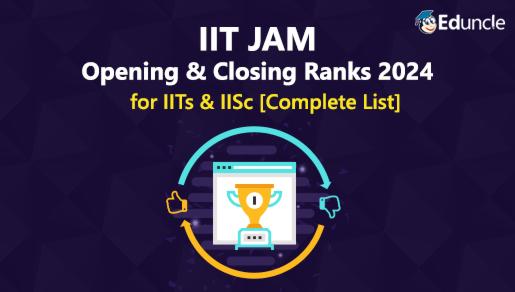
JEST (Joint Entrance Screening Test) is the national level examination conducted to provide admission in Ph.D. and Integrated Ph.D. programs. Every year, many candidates appear in this exam to study in top renowned colleges for Physics, Mathematics & Theoretical Computer Science.
So, if you are one of those who want to appear in it must check the latest JEST syllabus 2021. It will help you to start your exam preparation in a better way.
Here in this blog, you can check the latest JEST Exam syllabus 2021 along with the exam pattern for all subjects.
JEST Theoretical Computer Science Syllabus
JEST Syllabus 2021
As per the latest notification released by the officials, the JEST Exam is conducted for the following subjects: -
Physics
Mathematics
Theoretical Computer Science
Below, you can check the complete JEST 2021 Syllabus to prepare for your upcoming exam.
JEST Syllabus 2021 for Physics
JEST Physics Syllabus consists of the following topics:
Mathematical Methods
Quantum Mechanics
Electronics
Thermodynamics & Statistical Physics
Classical Mechanics
Electromagnetism & Optics
So, you can check the complete JEST Exam Syllabus for Physics in the below mention table: -
| Topics for JEST 2021 Syllabus Physics |
Sub-Topics |
| Mathematical Methods |
Vector algebra and vector calculus Tensors Curvilinear coordinate systems Linear algebra Linear differential equations, Elements of Sturm–Liouville theory Special functions Complex analysis Fourier series and Fourier transforms Laplace transforms Elementary properties of discrete groups Elements of probability theory Error analysis |
| Quantum Mechanics |
Uncertainty Principle Schrodinger Equation Central Potentials Hydrogen Atom Orbital and Spin Angular Momenta Addition of Angular Momenta Matrix Formulation of Quantum Theory Unitary Transformations Hermitian Operators Variational Principle Time Independent Perturbation Theory Time Dependent Perturbation Theory |
| Electronics |
Basics of Semiconductor p-n Junctions Diodes Transistors LCR Circuits Rectifiers Amplifiers Active Filters and Oscillators Basics of OPAMPS and their Applications Basics of Digital Electronics |
| Thermodynamics & Statistical Physics |
Laws of Thermodynamics Work and Heat Thermodynamic Potentials Elements of Kinetic Theory Maxwell’s Relations Statistical Ensembles Partition Function Classical Ideal Gas Harmonic Oscillators Classical and Quantum Statistics Fermi and Bose Gases Black Body Radiation Statistics of Paramagnetism |
| Classical Mechanics |
Newton’s Laws Conservation of Energy and Momentum Collisions Generalized Coordinates Principle of Least Action Lagrangian and Hamiltonian Formulations of Mechanics Symmetry and Conservation Laws Central Force Problem Kepler Problem Small Oscillations and Normal Modes Special Relativity in Classical Mechanics |
| Electromagnetism & Optics |
Electrostatics and Magnetostatics Boundary Value Problems Multipole Expansion Fields in Conducting Dielectric Diamagnetic and Paramagnetic Media Faraday’s Law and Time Varying Fields Displacement Current Maxwell’s Equations Energy and Momentum of Electromagnetic Fields Propagation of Plane Electromagnetic Waves Reflection, Refraction Electromagnetic Waves in Dispersive and Conducting Media Diffraction Interference Polarization |
JEST Syllabus 2021 for Theoretical Computer Science
In the Theoretical Computer Science subject, you must be focusing on these areas such as Analytical Reasoning and Deduction, Combinatorics, Data Structures and Algorithms, Discrete Mathematics, Graph Theory, Principles of Programming.
Below are some important topics of the JEST Theoretical Computer Science Syllabus which can be asked in the exam.
Introduction to Algorithms
Compilers: Principles, Techniques, and Tools
Elements of Discrete Mathematics
Discrete Mathematical Structures with Applications to Computer Science
An Introduction to Data Structures with Applications
Fundamentals of Computer Algorithms
Fundamentals of Data Structures
The Design and Analysis of Computer Algorithms
JEST Syllabus 2021 for Mathematics
JEST Mathematics syllabus covers all units of BSc & MSc Mathematics. You can prepare for this exam by following the MSc Mathematics books.
Note: The above-mentioned syllabus for the JEST Exam was updated on the basis of previous year information. So, whenever the latest updates released by the officials, we will mention them here.
After knowing the complete syllabus, you need to check the JEST paper pattern along with their marking scheme. It will help you understand the format of the exam in a better way.
JEST Exam Pattern 2021
The questions for the Joint Entrance Screening Test are based on the UG & PG Course syllabus offered by various Indian universities and institutions.
Below, we have provided detailed information of JEST Exam Pattern 2021. You must check the latest paper pattern for JEST and then start your preparation accordingly.
The exam will be conducted through offline mode.
There is a total of 50 questions of 100 marks.
The exam duration is 3 hours.
The exam will consist of three parts: -
Part A consists of 15 questions carrying 3 marks each.
Part B consists of 10 questions carrying 3 marks each.
Part C consists of 25 questions that carry 1 mark each.
Marking Scheme for JEST Exam
The JEST 2021 Marking Scheme is different for all three parts of the exam. To know about the negative marking of the JEST Exam, you should check them below:-
Part A: 3 marks will be rewarded for each correct answer and -1 mark will be deducted for the wrong answer.
Part B: 3 marks will be awarded for each correct answer. There is no negative marking in this part.
Part C: 1 mark will be awarded for each correct answer and -1/3 mark will be deducted for the wrong answer.
| Parts |
JEST Negative Marking |
Making Process |
| Part A |
Each Incorrect Answer of 3 marks questions |
-1 mark deducted |
| Part B |
Each Incorrect Answer of 3 marks questions |
No Negative Marketing |
| Part C |
Each Incorrect Answer of 1 mark question |
-1/3 mark deducted |
| All Parts |
No Answer |
0 marks deducted |
| All Parts |
Wrong Question |
Marks will be given to all aspirants |
You can also check our blog to know the difference between IIT JAM and JEST Exam.
Now, you can start your preparation with the above-mentioned syllabus & paper pattern for the JEST Exam.
I hope, this blog provided you the complete information about the JEST Exam Syllabus and the exam pattern along with their marking schemes.
If you still have queries/doubts, please feel free to ask through the comments box below.
Thank You!!





















